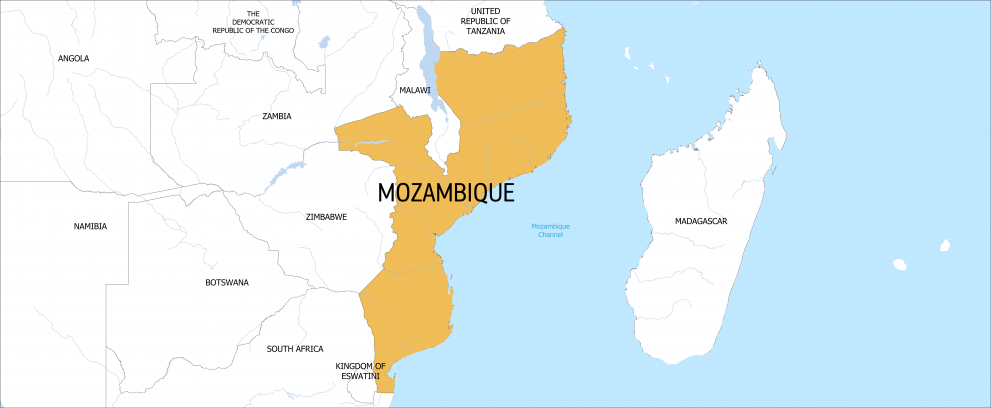Introduction
The security situation in Cabo Delgado, Northern Mozambique, remains highly volatile, with close to 1.3 million internally displaced people between (IDPs) and returnees.
Civilians continue to bear the brunt of the armed violence; conflict-affected populations are suffering from a lack of access to basic services and exposed to protection risks.
Moreover, extreme natural shocks like cyclones and the El Nino induced drought, have detrimental effects on food security and the livelihoods of the population
What are the needs?
After an improvement of the security situation in 2023 with better road access and a significant number of returns among internally displaced persons to areas previously affected by active conflict, the security situation in Cabo Delgado deteriorated again in 2024.

Humanitarian needs are significant, while the crisis continues to be underfunded. In Northern Mozambique, some 1.3 million people require protection, food assistance, nutrition services, health, education, water and sanitation, and shelter. Over 4.9 million people are currently facing severe food insecurity (IPC3+) across the country.
The country is also vulnerable to natural hazards, including floods, cyclones, and drought. The El Nino for 2023-2024 has exacerbated the drought situation and the recent cyclonic season has been particularly severe with three tropical cyclones having hit the north of the country since December 2024, affecting some 1.4 million people.

How are we helping?
In 2025, the initial allocation is €17 million in humanitarian assistance to Mozambique to provide multi-sectoral humanitarian assistance. As part of the funding, €5 million were mobilised to assist the most affected households by the recent tropical cyclones (Chido, Dikeledi and Jude) which struck Northern Mozambique.
For 2024, the initial allocation for humanitarian assistance to Mozambique was €19 million. This includes €10.5 million for humanitarian response, €6 million for education in emergencies, €2.5 million for disaster preparedness. Furthermore, €3 million were mobilized to respond to the El Nino induced drought and €0.7 million and 60 tonnes of emergency aid, including shelter materials, were provided after cyclone Chido hit the country in December 2024.

Through the 2025 budget, the DG ECHO will continue to support lifesaving multisectoral humanitarian assistance directed to the most vulnerable people affected by the conflict in Cabo Delgado, including the IDPs, returnees, and their host communities. The assistance includes access to food, water and sanitation, health, nutrition, protection and logistics services. Education will continue to be supported through previous funding.

The EU also supports humanitarian advocacy efforts to promote compliance with International Humanitarian Law, full humanitarian access, and the centrality of protection.
In response to the crisis in Northern Mozambique, the EU is implementing an integrated approach, encompassing peacebuilding, security, development, and humanitarian interventions, looking at complementarity and synergies between the different EU instruments.
Last updated: 08/04/2025
Facts & figures
1.3 million people require life-saving and life-sustaining humanitarian assistance in the conflict-affected Cabo Delgado province.
4.9 million people face severe food insecurity (IPC3+)
In Cabo Delgado, there remains 717,000 IDPs and 611,000 returnees
EU humanitarian funding:
€17 million in 2025
€22 million in 2024
€26.5 million in 2023

